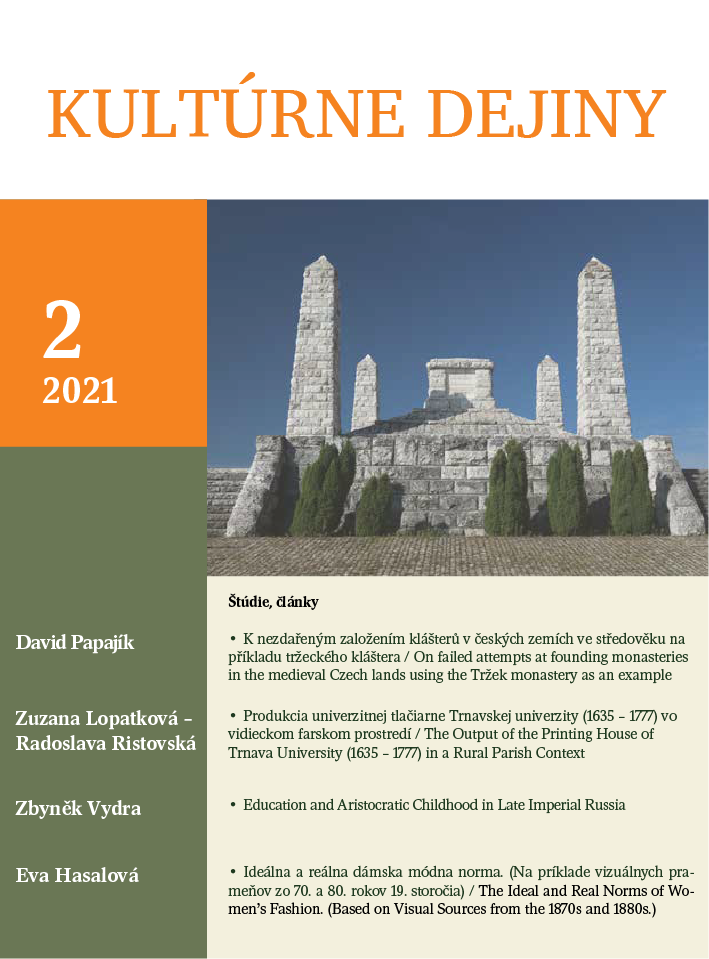Education and Aristocratic Childhood in Late Imperial Russia
Education and Aristocratic Childhood in Late Imperial Russia
Author(s): Zbyněk VydraSubject(s): Cultural history, History of Education, 19th Century, Pre-WW I & WW I (1900 -1919)
Published by: VERBUM - vydavateľstvo Katolíckej univerzity v Ružomberku
Keywords: Imperial Russia; aristocracy; education; everyday life; history of childhood;
Summary/Abstract: The article focuses on the education and upbringing of aristocrats in late imperial Russia (1855-1917). It draws mainly from sources of a personal nature (non-published and published memoirs and diaries). Their analysis shows the main elements, continuity and discontinuity in the education of boys and girls from aristocratic families during their childhood, i.e. from the age of six to twelve/thirteen. In the vast majority of cases, aristocrats’ childhood memories were positive. The children’s world was filled with studying and games, often in the idyllic setting of a country estate (usaďba). The study deals with educational priorities and an educational strategy concerning the future careers of Russian aristocrats. Besides other things, the author comments on the importance of education in the aristocratic value system. The article emphasizes the absolute predominance of the home education of aristocratic children, which lasted from the first half of the 19th century until the First World War and the Revolution. More significant changes in education became evident only in adolescence, which was more influenced by state educational reforms, growing civic awareness, and various ideas about the best preparation for future life and a career. Aristocratic families chose from among elite aristocratic schools, private lyceums, or state gymnasiums and the education of adolescent boys and girls was much more dynamic. The characteristic features of the educational process were a cosmopolitan orientation, an emphasis on versatility, and knowledge of foreign languages. Religion and the moral authority of parents played an important role in education, too. Over the centuries, parental involvement in child-rearing increased.
Journal: Kultúrne dejiny
- Issue Year: 12/2021
- Issue No: 2
- Page Range: 237-258
- Page Count: 22
- Language: English

